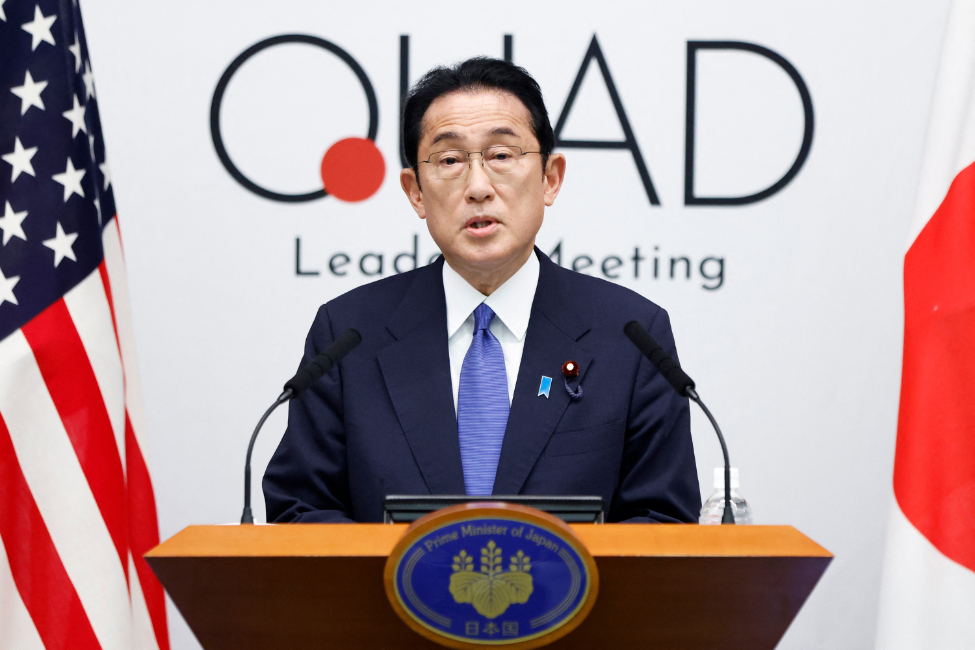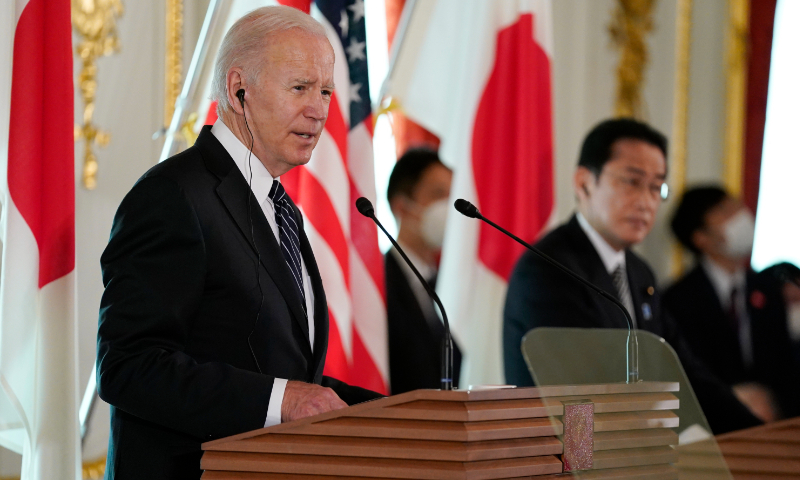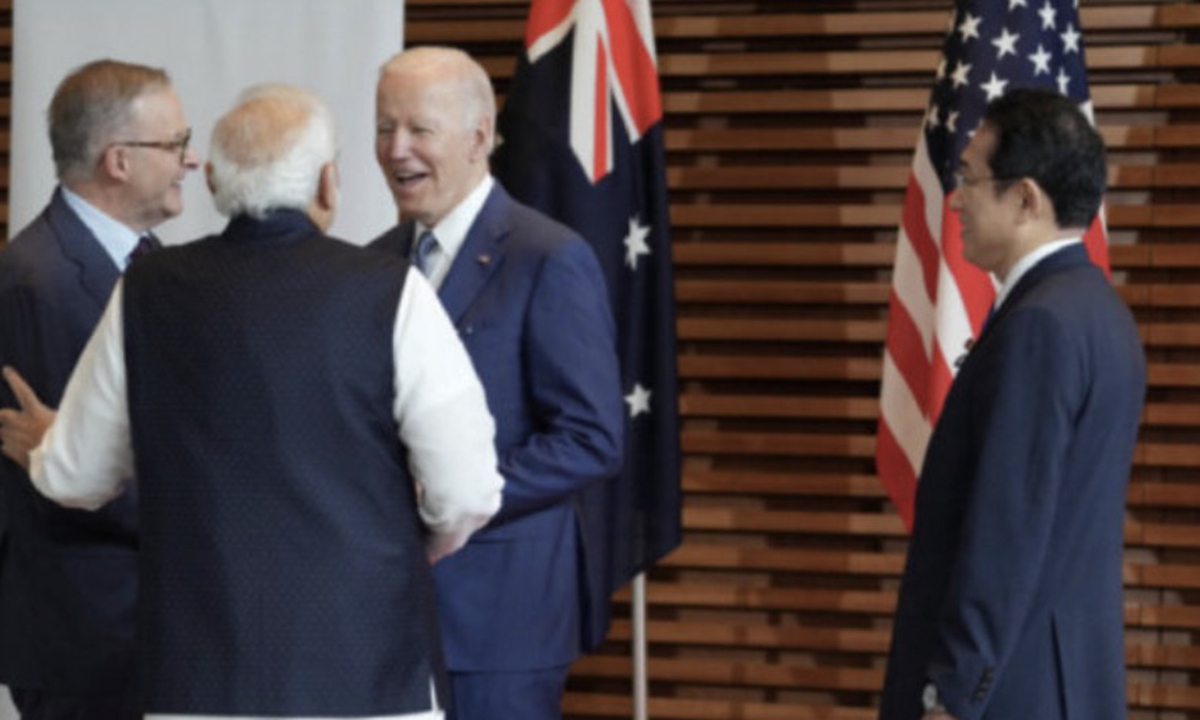
Japan's Prime Minister Fumio Kishida
During his trip to Tokyo, US President Joe Biden officially launched the Indo-Pacific Economic Framework for Prosperity (IPEF), which the Japanese government has proactively catered to and followed. However, this framework will severely affect Japan's economic and trade cooperation not only with China but also with the US, and will also negatively impact Japan's own economic recovery.
The Kishida administration has once again eagerly acted as a pawn of the US despite that the prospects of the IPEF remain uncertain. The main reason is that on the one hand, Japan seeks more security guarantees in exchange for participation in the economic framework, in a bid to introduce more US efforts to check and balance China's development in the region. In addition to security, other reasons behind this embracement include seeking American support for Japan's pursuit to be a permanent member of the UN Security Council, as well as promotion of economic cooperation between Japan and other US allies.
On the other hand, Tokyo's embracing of the IPEF may also stem from Japan's pursuit of strengthening economic security. Since the Kishida administration came to power, it has actively promoted the concept of economic security in national construction. Seizing every possible opportunity to ramp up cooperation with the US and other countries with advanced technology and "like-minded values," Japan believes that this can help it gain more leverage in coping with "economic security threat" from China.
However, the IPEF proposed and dominated by the US has been ridiculed across the world, including by the mainstream Western media outlets. No market access or tariff reductions have been outlined, which has raised doubts about the framework's sincerity, attractiveness, and prospects. Against such a backdrop, the Kishida administration's wishful thinking is difficult to achieve, yet the side effects are obvious.
The Kishida administration's moves in coordinating Washington to engage in economic small cliques will not only undermine the existing model and good atmosphere of economic development in the Asia-Pacific region, but will also have a serious negative impact on Japan's own economic recovery. The IPEF advocated by the US is obviously exclusive and is another manifestation of its Cold War mentality. China and Japan are the world's second and third largest economies and important members of regional economic cooperation mechanisms. The policies and attitudes of the two countries have a profound influence on prospects of regional economic cooperation.
The Kishida administration's aggressive adherence to the US-led IPEF, which is explicitly aimed at China, will easily undermine the integrity of economic cooperation in the Asia-Pacific as well as cooperation between China and Japan under the established economic cooperation mechanism. In addition, as the US promotes its Indo-Pacific strategy and the IPEF as economic support, the plight of small and medium-sized countries in this region, represented by Southeast Asian countries, will intensify, as they are forced to choose sides. ASEAN's central role in the region may be marginalized, and the bloc may even face the risk of being divided. The role of established economic cooperation mechanisms in this region in promoting economic globalization will be greatly weakened.
In this case, Japan's own economic development will also be harmed. The Japanese government had actively joined the US-led Trans-Pacific Partnership (TPP) for purposes including strengthening Japan-US economic relations. But the Trump administration later withdrew from it, claiming the agreement was not in the US interest. Tokyo has never given up the idea of bringing the US back into the CPTPP, but the Kishida administration's support for the IPEF so far has not been rewarded with Biden's interest in returning to the CPTPP. CPTPP may face another challenge from the IPEF.
Since coming to power, Kishida has advocated the "New Capitalism" based on the concept of "a virtuous cycle of growth and distribution." However, Japan is faced with social problems such as sub-replacement fertility and an aging population leading to extremely limited space for fiscal and financial policies. If the Kishida administration wants to make progress with its "New Capitalism," it needs to well handle its foreign economic cooperation, especially the relations with China and the US, two important trade partners. But the Kishida administration's insistence on joining the IPEF to counterbalance China is bound to affect the interaction between China and Japan in terms of economic cooperation, which will further affect the "virtuous cycle of growth and distribution," destroying Kishida's "New Capitalism" concept.
In short, the Kishida administration's participation in the IPEF will not only fail to achieve the desired goals, but will also hinder deepening development of China-Japan economic ties and even Asia-Pacific regional economic cooperation, disrupting Japan's own economic recovery.
The author is a research fellow at the Institute of International Strategic Studies of the Central Party School of the Communist Party of China. opinion@globaltimes.com.cn


